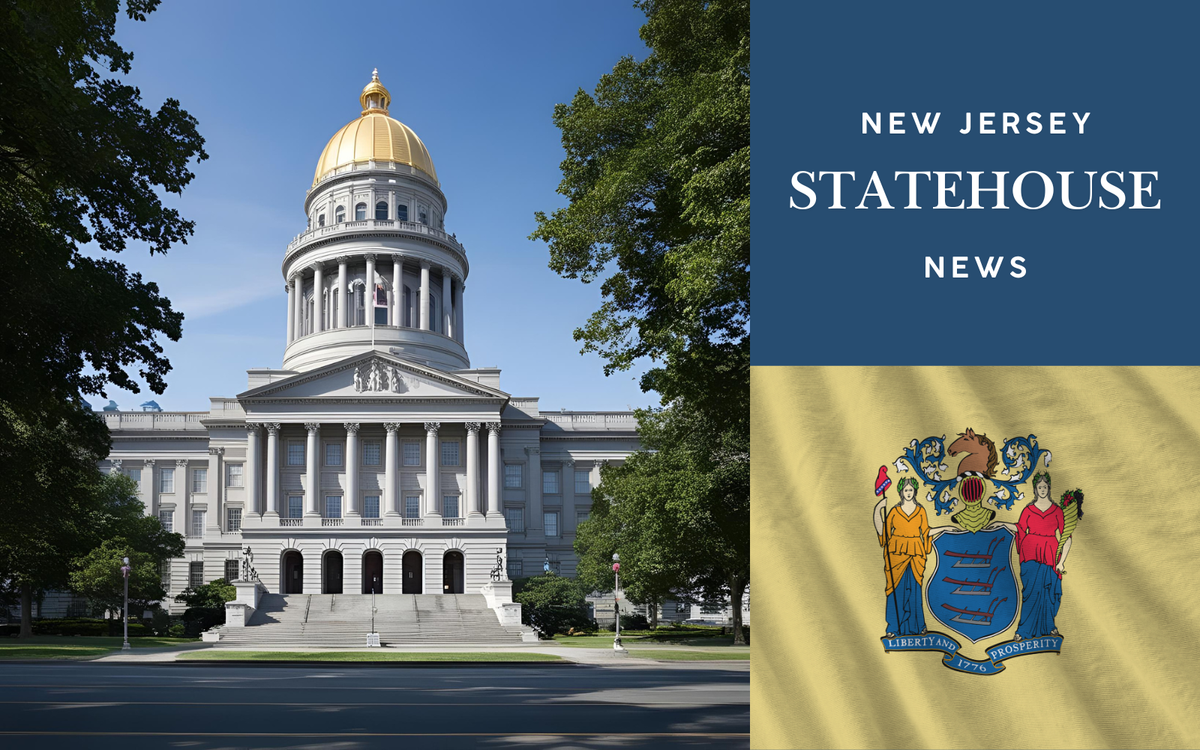Assembly Democrats Continue Efforts to Address Rising Utility Costs
Assembly committees advance measures to protect ratepayers and modernize energy oversight

TRENTON — In the latest effort to tackle rising utility costs and promote smarter, more transparent energy policies, the Assembly Appropriations and the Assembly State and Local Government Committees on Thursday, May 15, 2025, advanced several bills designed to assist ratepayers, increase consumer protections, and ensure that New Jersey’s energy infrastructure is both affordable and sustainable for the long term.
The Assembly Appropriations Committee advanced two bills to provide help for residents facing difficulties paying their bills.
Sign Up for Atlantic City Focus Weekend Guide
Your Key to Winning the Weekend in AC and Beyond!
No spam. Unsubscribe anytime.
“Our top priority is, and has always been, putting New Jersey residents first," said Assemblywoman Lisa Swain (D-Bergen), Chair of the Assembly Appropriations Committee. "With utility costs rising, we must ensure affordability and strong consumer protections for those bearing the heaviest economic burdens.”
The committee advanced A5440 (DeAngelo/ Egan/ Pintor Marin), which would require State agencies that administer utility bill payment assistance or energy efficiency programs to review, and potentially increase, income thresholds for residential customers to participate in programs.
The committee also advanced A5563 (Pintor Marin), which would establish a “Summer Termination Program” for certain utility customers. Similar to the already established “Winter Termination Program,” this bill would prevent utility companies from disconnecting electric, sewer, or water service during periods of intense heat, regardless of bill payment status.
“Bills A5440 and A5563 demonstrate our commitment to easing these pressures – especially during extreme weather – so no family has to choose between essential services and making ends meet,” Swain said.
Other bills that passed through the Assembly Appropriations Committee include:
A5264 (Karabinchak/ Haider/ Spearman) would require the establishment of an automated platform to expedite construction code approval of applications to install residential solar energy systems.
A5267 (DeAngelo/ Bailey/ Egan) would require the New Jersey Board of Public Utilities (BPU) to procure and incentivize transmission-scale energy storage. Energy storage projects enhance grid reliability and resilience by balancing supply and demand.
A5435 (Tully/ Katz/ Singh) would require the Division of Housing and Community Resources in the New Jersey Department of Community Affairs and applicable State agencies and nonprofits to establish a consolidated application for residential utility assistance programs.
A5436 (Schnall/ Bagolie/ Pintor Marin) would require the BPU to determine and consider the lowest reasonable return on equity before approving electric, gas, and water public utility base rate cases. Experts argue that New Jersey's default return on equity rate of 9.6% no longer reflects the current market realities, as the risks associated with investments in electric infrastructure have decreased.
A5438 (Moen) would establish the “Public Utility Fair Profit Act” requiring public utility companies to conduct an annual financial review to compare their actual revenues against the approved revenue requirements set by the BPU. Any excess profits would then be redistributed to customers.
Additionally, the Assembly State and Local Government Committee also advanced two bills today that are designed to increase oversight of transmission projects and ensure transparency in regional energy market decisions.
A5463 (Karabinchak/ Kane/ Hall) would require electric public utilities to file annual reports with the BPU detailing their recorded votes, and the votes of their affiliates, at PJM Interconnection meetings. The reports would also have to include explanations of how these votes align with New Jersey’s goals for affordability, reliability, and sustainability.
A5465 (Hutchison/ Verrelli/ Morales) would require electric utilities to seek a certificate of public convenience and necessity from the BPU before undertaking transmission line projects. The application would be required to demonstrate the project’s necessity, cost-efficiency, construction viability, and financial soundness. The bill responds to recent concerns over PJM’s lack of oversight, highlighted by a federal investigation into a $546 million project approved without proper review.
“Families and small businesses across New Jersey are feeling the strain of high energy costs, and too often the decisions that impact their monthly bills are made with little public input or transparency,” said Assemblyman Robert Karabinchak (D-Middlesex), Chair of the Assembly State and Local Government Committee. “The bills heard in today’s committee are about putting the public back at the center of the process. By continuing to push for accountability and better decision making we are one-step closer to building a system that actually works for the people who pay the bills.”
Thanks for reading the whole story!
At Atlantic City Focus, we're committed to providing a platform where the diverse voices of our community can be heard, respected, and celebrated. As an independent online news platform, we rely on a unique mix of affordable advertising and the support of readers like you to continue delivering quality, community journalism that matters. Please support the businesses and organizations that support us by clicking on their ads. And by making a tax deductible donation today, you become a catalyst for change helping to amplify the authentic voices that might otherwise go unheard. And every contribution is greatly appreciated. Join us in making a difference—one uplifting story at a time!
*** GET UP WITH ATLANTIC CITY FOCUS and RAYMOND TYLER! ***






